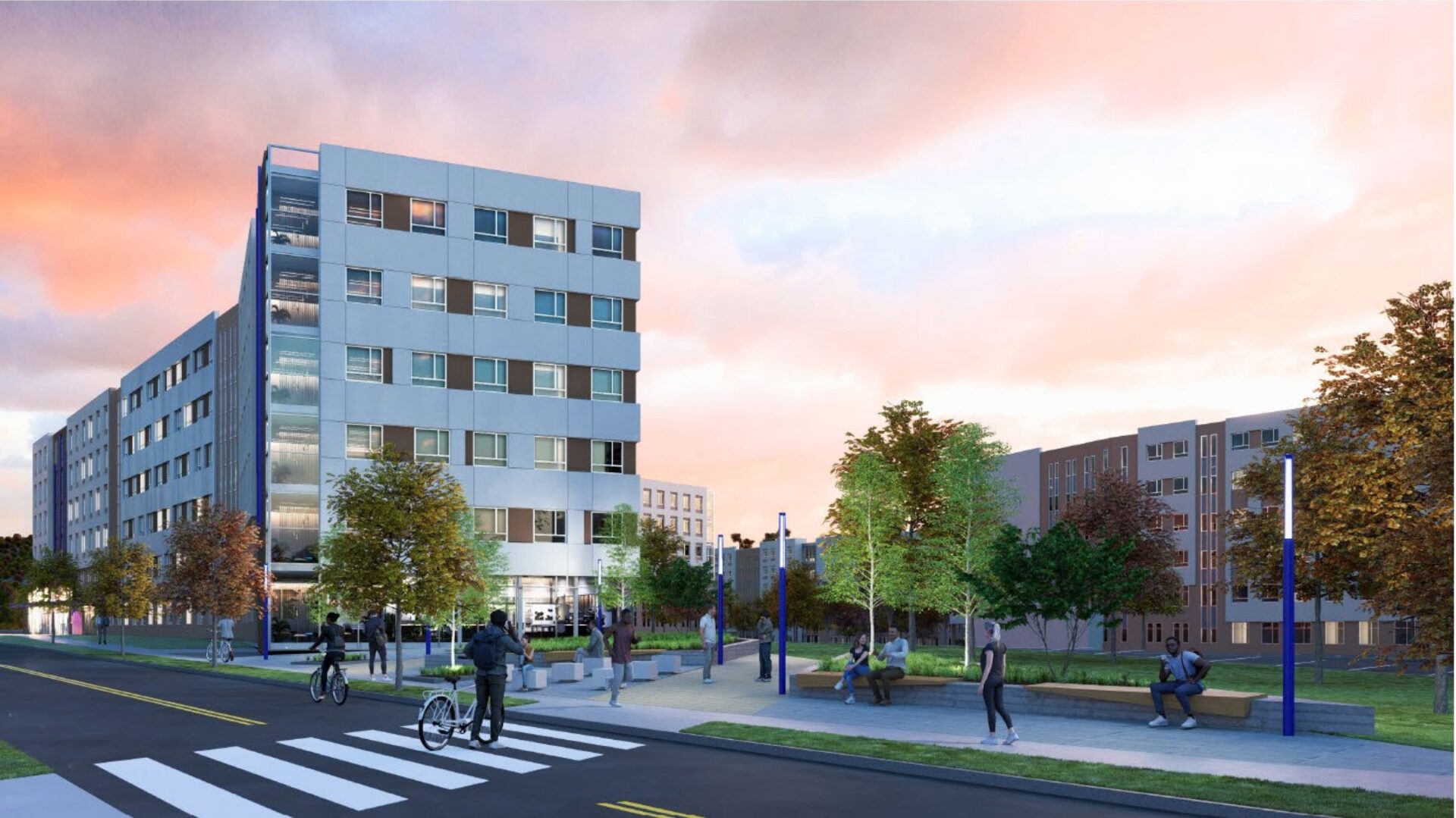Penn State will partner with a private developer for a new 1,500-bed housing project to accommodate planned enrollment growth at the University Park campus.
The Board of Trustee on Friday approved entering a long-term ground lease with South Carolina-based developer Greystar Inc., which will build and operate the complex on university-owned land near the corner of University Drive and East College Avenue. Penn State will maintain ownership of the land and Greystar will pay the university annual ground rent.
Penn State did not disclose any of the anticipated terms of the ground lease.
The complex is intended for non-first year students. It will offer a mix of six different unit types, “providing unit types and price points that will meet the needs of a wide range of students,” according to a presentation to the board’s Finance and Investment Committee on Friday.
Rental rates proposed by Greystar “are affordable relative to rents in the State College market,” according to the presentation, though the rates were not detailed
Greystar is expected to complete approximately 775 beds by the fall of 2027 and another 730 by the fall of 2028.

A “road map” for the future of the university unveiled earlier this year plans to “leverage” growing demand for attendance at University Park by increasing undergraduate enrollment 9,175 in 2023-24 to 10,000 over several admission cycles. The current maximum based on housing capacity, however, is 9,500.
Penn State issued a request for proposals from developers for the new housing project in June, and after a monthslong evaluation process landed on Greystar, which also has partnerships with 11 other universities in Pennsylvania.
“This structure allows the university to continue to focus on using housing reserves and debt for existing housing renovations,” Sara Thorndike, senior vice president for finance business, said at Friday’s board meeting.
Alumni-elected Trustee Barry Fenchak was the lone dissenting vote. His opposition was not about the specifics of the project, which he said might have “a lot of potential positives,” if it were merely about filling unmet housing demand through a different avenue than the historical way of building campus residences financed by Housing and Food Services funding and debt.
Instead, Fenchak said he disagreed with the overall strategy of trying to increase enrollment at University Park, citing internal and external factors such as a reliance on having more students, particularly from out-of-state, changing demographics and growing alternatives to traditional higher education.
“I think when we look at those concerns it in my view is not in the best interest of the university to be looking to expand enrollment at University Park,” Fenchak said. “We’re already digging far, far deeper into our applicant pool because of those issues … in order to maintain enrollment there. If we put ourselves in a position where we have to increase enrollment, that’s only going to exacerbate those concerns.”
Since 2000, Penn State has added the Eastview Terrace complex and new dormitories at East and North halls. The university has also undertaken comprehensive overhauls of its 1950s and ’60s era dorms, completing renovations to North, East and South halls, with Pollock Halls next up on the docket starting in 2025. The older West Halls is also undergoing some mor modest modernization and capacity expansion.




